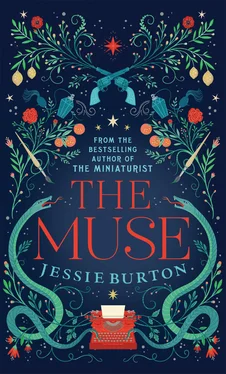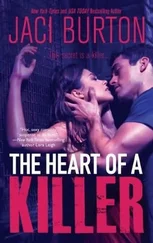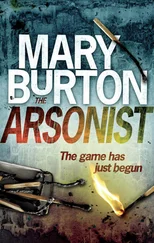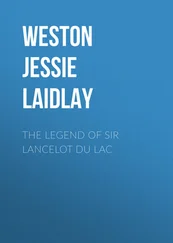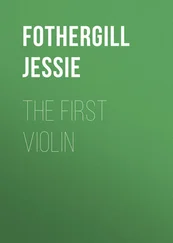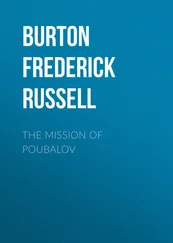‘Are you certain your mother will not mind?’ she said.
‘She won’t even notice. Isaac is still here I think,’ Olive said, putting away the sketchbooks and The Orchard under the bed. ‘We should go and see what my mother wants with him.’
Teresa pushed down the cloud that rose in her chest at the mention of Isaac, closed the Renaissance book and followed Olive out.
*
Isaac picked up the second glass of lemonade and clinked it against Sarah’s. He was used to women being like this around him; feline, flirtatious, sometimes giddy. He never encouraged, but this only seemed to make their behaviour more pronounced. It was almost clownish — and yet he had learned not to assume immediately what women wanted from him. It might look like one thing, but it was quite often another.
He thought of how essentially different Olive was from her mother, so innocent, reaching out to him like a drowning girl, more obviously than she probably imagined. And yet she intrigued him in a way that Señora Schloss did not. Sarah dazzled immediately, but there was something supple and interesting about Olive, beneath her awkwardness. She was a survivor of her parents’ marriage. He wondered whether if Olive stayed with them indefinitely it might work out badly for her.
He heard footsteps, and Olive appeared at the door, switching her attention between him and her mother, as if she was trying to work out a difficult sum. Teresa was peering from behind Olive, with a strange look of triumph on her face that made Isaac wary.
‘Liv,’ said Sarah. ‘Guess what?’
‘Do I have to?’
‘Mr Robles is going to paint my picture.’
‘What?’
‘As a surprise for Daddy,’ Sarah went on. ‘I’ve given Mr Robles a commission.’
‘But he hates surprises.’
‘Well, so do I, Olive. But Daddy is getting this painting, whether he likes it or not.’
Olive came forward, seating herself on the moth-eaten armchair, left at a careless angle to the sofa. ‘Have you got time to paint this, Mr Robles?’ she asked. ‘With all the work you have?’
‘It will be an honour,’ he said. Olive looked towards the unlit fireplace, filled with logs that Isaac had piled up for their convenience. Teresa remained in the doorway. She was sneering slightly at him, and he felt irritated with her. She lived in a bubble, she had no idea how many times over the years he’d protected her.
‘I should be in the painting,’ Olive announced.
‘Livvi,’ said her mother after a pause, realigning the crease of her trouser leg. ‘It’s my surprise.’
‘I think Daddy would like us both to be in the painting. We sat for one years ago. We should do it again.’
‘We did?’
‘You’ve forgotten. Yes, we did. Mr Robles, don’t you think that would be a good idea?’
Isaac felt the pressure of the women’s attention like a physical weight. ‘You must decide,’ he said. ‘He is your father, your husband.’
Sarah picked at a bobble. ‘Mr Robles, if I agreed to sit with my daughter, would you need to paint us together?’
‘Not always, señora.’
‘Well then,’ she sighed. ‘We shall work it out between us, won’t we, Olive?’
Olive tipped her chin in Sarah’s direction. ‘Yes, Mother,’ she said. ‘We will.’
Olive and Sarah were to have three initial joint sessions, arranged when Isaac was not teaching in Malaga. Teresa was to guard the secret. ‘Tell Harold that we’re at the market in Esquinas,’ Sarah had instructed her. ‘Or seeing the local doctor. You can think of something, Teresa. You’re so clever.’
By the second session, as Isaac painted Olive and her mother in the dimming light of his cottage kitchen, Olive knew something was wrong. Sarah, in a semi-sheer lavender blouse and a brown silk skirt, kept her spine continuously at a slight arch, one arm draped behind Isaac’s kitchen chair. She was concentrating on being her best self for the artist, but Olive could see how bleak and drawn Isaac looked.
She thought he should be happy; his party had just won the national election. It had been on the wireless, on the front pages of the newspapers her father brought back from Malaga. A left-wing coalition was in power, something that surely must make him feel triumphant.
‘What’s wrong?’ she asked, when Sarah excused herself for a moment.
He looked up from where he was painting, with a surprised expression. ‘Another boy was killed,’ he said. ‘I knew him a little.’
‘Killed?’
‘Last night. A local boy called Adrián, a member of the Anarchist party. He worked in a factory in Malaga. Started by tying red ribbons on donkeys and bicycles, and ended up burning his boss’s property records. He had a loud mouth, but he was only a kid. Some bastards shot him and tied him to the back of a truck.’
‘Oh, Isaac. That’s awful.’
‘They are calling it a crime of passion, which is a joke. He didn’t have time for love.’
‘Have they arrested anyone?’
Isaac’s expression darkened. ‘No witnesses. He tied himself to the truck, of course. He didn’t have any feet left by the time they’d finished.’
‘Good God. Who would do such a thing?’
‘Everyone, no one. The Civil Guard are saying it was a Communist gang, mistaking him for some rich kid. Others are blaming it on the gypsies. Anarchist, Communist, Falangist or Socialist, oligarco, gitano or what? Maybe his father did it?’ Isaac spat.
Olive wanted to comfort him, but she knew her mother would be back any moment. She tried to be steady. This was a one-off, she told herself, a hideous thing, but still unique. The boy was a symbol of nothing, just an unlucky human put out too soon. But she remembered what Isaac had told her — the polar bear, the priest swinging from a tree, the soil of the land coursing through the people’s veins. She thought of The Orchard , waiting in her attic, her perfect, multi-coloured paradise, and felt ashamed of her ignorance, her foreign and insistent make-belief.
*
The next evening, Teresa sat at the kitchen table in the cottage, whilst Isaac skinned rabbits he’d shot for a stew. She had before her the Vogue which Olive had given her, and she handled it as delicately as if it was a first edition of a precious book. The woman on the cover stared delicately back. She was blonde, wearing a long cream cape, one black-and-white-striped beach shoe peeping out. She was leaning on the side of an open-top car, shading her eyes against the sun but looking upwards nevertheless, at some invisible point. The sky behind her was deep blue. HOLIDAY — TRAVEL — RESORT FASHIONS ran along the bottom of the picture in a clean, attractive font.
‘You’ve been quiet,’ Isaac said. ‘Are you worried about what I’ll do?’ When she remained silent he said, ‘Jesus, Teresa. You should be worried for me.’
‘Just be calm about all this, Isaac. Nothing you do will bring back that boy Adrián. Stealing honey from the duchess’s beehives is one thing, but putting yourself in danger is another—’
‘I could say the same to you.’ He pointed at the magazine with his knife. ‘You should behave, too.’
‘But I’m not in danger.’
‘Are you sure? Remember last time, Tere. I won’t bail you out twice.’
‘I haven’t taken a thing. Olive gave me this.’
Teresa remembered how it had been with Miss Banetti. The loneliness, the drudgery. The woman had had so many belongings that she didn’t even notice when they began to disappear. It had been so tempting, so easy. Small things first, a ring, a silver matchbox. Then on to empty scent bottles, and finally a necklace of emeralds. Teresa had seen these items, always overlooked by the rich foreigners in her care, as fair payment for a grey life. She buried the trinkets in a tin out by the well, and she would visit them sometimes, never actually putting them on her own body, only holding the emeralds to the sun, watching them wink in green complicity. She loved them so much that she felt no guilt.
Читать дальше
